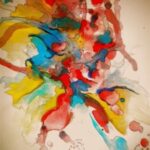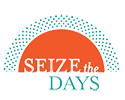What Cancer Takes, and What It Gives

Elissa was only 23 when she was first treated for breast cancer. After going two more rounds with the disease, she understood the journey and wanted to guide others who were travelling the same path. Now, she works with other breast cancer survivors, helping them to navigate the rough spots.
Listen
Transcript
My name is Elissa Bantug and I was first diagnosed with breast cancer at age 23. I am 30 now. I was diagnosed at 23, 25, and 27. I am the program coordinator at Johns Hopkins of the Breast Cancer Survivorship Program. We address long term survivorship needs of patients transitioning off of acute care for breast cancer.
When I was finishing treatment, I asked my medical oncologist what’s next for me after treatment ends and I’d finished chemo, I’d finished radiation and finished tamoxifen and he said, Nothing, have a nice life. I was really paralyzed by fear after hearing those words and really didn’t have a plan for going forward.
And then I started talking to other survivors and hearing the same words. It was transitioning off of acute care was really scary for them and people were really good about providing support and being around and helping out, but when treatment stopped so did the help and so people found the time after treatment ending to be really scary and hard.
We decided to develop a survivorship program. clinic here where we really look at long term needs, both medical and psychosocial. So looking at what patients need to be doing long term to making sure that all of their medical needs, not just their cancer needs, are taken care of, as well as making sure that their psychosocial needs, sexual health and depression, anxiety, all of those issues are being cared for.
After diagnosis, I got really involved in advocacy projects at different non profit groups, got on several boards at Komen and Lance Armstrong and another thing that was particularly interesting to me is that there were not, there was not a lot of options or resources for people being diagnosed with breast cancer so young, so I started really trying to work with community groups to try to say we need resources for young women and got pretty involved in advocacy that way.
Working in this arena has made things very humbling. definitely talk to survivors or patients every day, and it reminds me how far that I’ve come, and that there is life after cancer, that, you definitely can go on to have a meaningful life. So seeing patients that are really struggling and then talking to them weeks or months later and saying, it may be really rough right now, and you’re going to have a very difficult few months, but Things do get better and they will get better, and it’s definitely also allowed me to reflect back and to realize what’s important in life. At the time, cancer took so much.
It took my breasts, it took my hair, it took everything that defined me that I thought of as a woman. And so, being able to say that’s not who I am and cancer doesn’t define me has really been exceptional. And to be able to work with other cancer survivors and say, listen, things may be tough right now, but it will get better, it does get better, and there are lots of gifts that cancer can give you.






